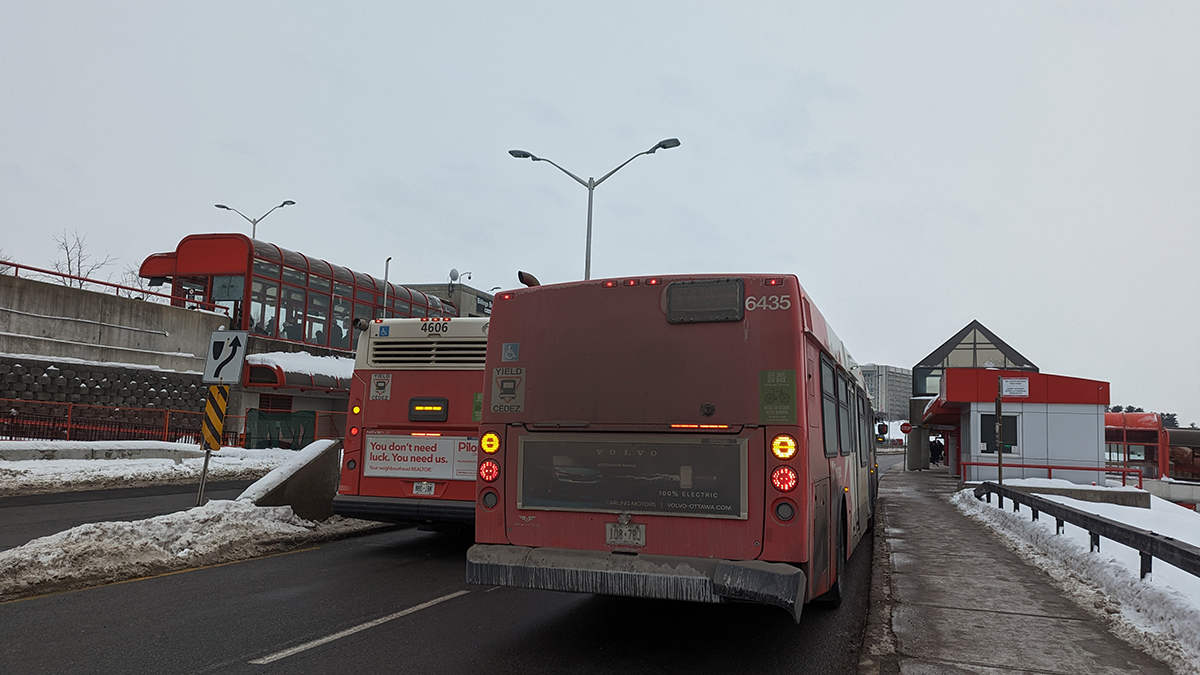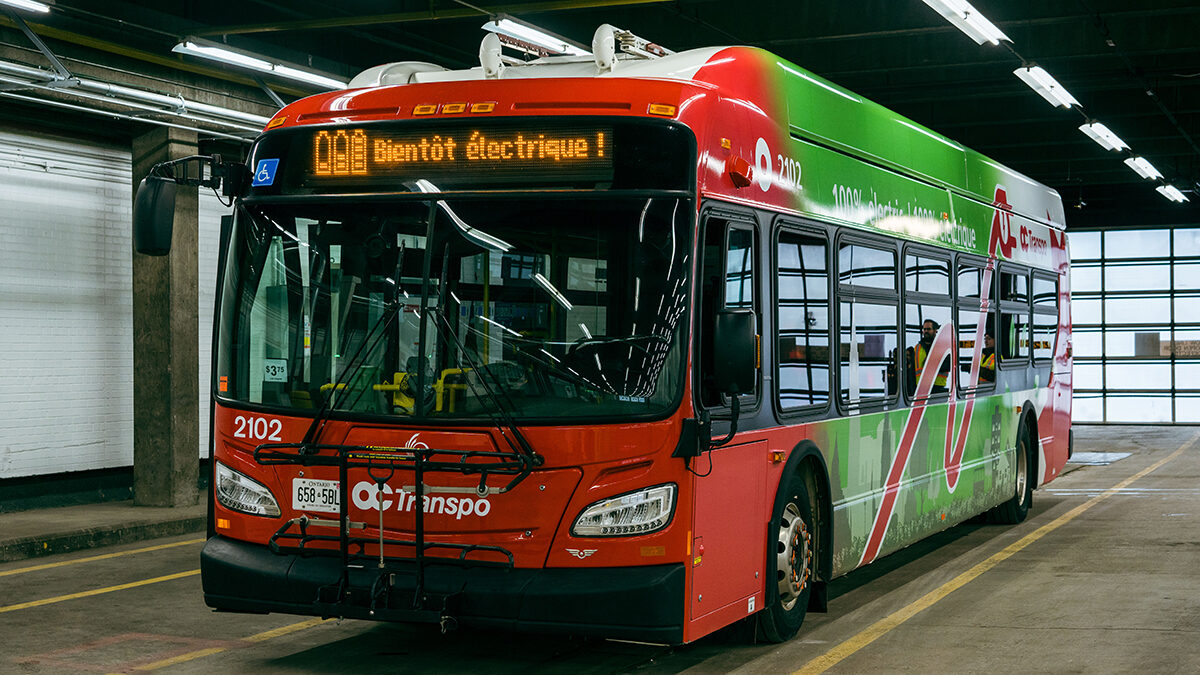Amid rising costs and a fleeting availability of federal funding, Ottawa’s transit commission voted to proceed with purchasing 350 electric buses by 2026 — 100 fewer than initially proposed — at an emergency meeting on Jan. 27.
City council originally approved the nearly $1-billion initiative in June 2021 to phase in 450 zero-emission buses with supporting infrastructure by 2027.
The smaller purchase plan, staff explained in a report presented to councillors, reflects funding shortfalls, a tightened timeline and other factors.
While this initial step is smaller than anticipated, Cheryl Randall, a climate change campaigner with Ecology Ottawa, said the city can still meet its goal to fully curb the greenhouse gas emissions of OC Transpo’s 940-bus fleet by the end of the decade.
According to a Financial Update for Zero-Emission Bus Program Funding, these 350 buses could reduce greenhouse gas emissions by approximately 30,000 tonnes annually, bringing down the transit fleet’s 44-per-cent contribution to total corporate emissions from City of Ottawa operations.
So, even with the slower rollout of electric buses, Randall said Ottawa residents can still benefit from such a significant number of zero-emission transit vehicles.
“The sooner we get off of fossil fuels and get public faith restored in these big infrastructure programs to continue through the city, the better. Because vulnerable people in our community need public transport to be running,” said Randall. And “not just a sparse public transport system. We need it to be reliable, running in a timely fashion — and the more investment we can make in our public transit system at the moment, the better.”
Even more, the electric buses will offer many health benefits for Ottawa residents.
Martha Robinson, an environmental health official with Ottawa Public Health, said Health Canada and other authorities have determined that diesel fuel emissions adversely affect human health, especially in the long term.
“Numerous studies have linked elevated particle levels in the air to increased hospital admissions, emergency room visits, asthma attacks and premature deaths among those suffering from respiratory problems,” said Robinson. “Diesel exhaust has been identified as a carcinogen. For these reasons, exposure to diesel emissions should be limited in both the short and long term.”
‘The sooner we get off of fossil fuels and get public faith restored in these big infrastructure programs to continue through the city, the better. Because vulnerable people in our community need public transport to be . . . running in a timely fashion — and the more investment we can make in our public transit system at the moment, the better.’
— Cheryl Randall, climate change campaigner, Ecology Ottawa
However, eliminating diesel emissions is more complex than replacing only diesel-powered buses. Other city-owned diesel vehicles, including garbage trucks, as well as privately owned school buses and many other vehicles, will continue contributing to greenhouse gas emissions on Ottawa roads over the coming years.
“In 2020 and 2021, we (Ecology Ottawa) had an air quality monitoring campaign called Breathe Easy. And in the 2021 report, we looked at the data mapped across the city, then transposed the socio-economic demographics of those neighbourhoods onto the same map, and we saw that where trucking routes were put through neighbourhoods, the air quality was much lower,” said Randall. “So, looking at transitioning away from fossil vehicles is one aspect, but making sure you don’t have trucking routes going through built-up neighbourhoods, especially low-economic neighbourhoods, is another. Enforcing anti-idling mandates and looking at all the other vehicles that are not buses will also help.”

Fortunately, Ottawa has already started to investigate these alternatives.
Laila Gibbons, the director of fleet services, said the City of Ottawa continues to advance its use and adoption of green technologies through Energy Evolution and other environment-focused transportation initiatives, including previous strategic and “Green Fleet” plans.
“The City oversees the purchase, maintenance and disposal of vehicles and pieces of equipment which support city-wide operations, and annually review available hybrid and electric vehicle options that meet the needs of its operations,” said Gibbons. “Currently, of the 471 fleet units with available green options, 200 units have already been replaced, or growth units have been purchased with hybrid or green alternatives. In 2023, 38 units have been identified for possible replacement with green alternatives.”


![An OC Transpo bus pulls up to a curb to take on passengers. [Photo © Gabrielle Huston]](https://capitalcurrent.ca/wp-content/uploads/2023/02/A-bus-arrives-to-a-bus-stop-250x141.jpg)

